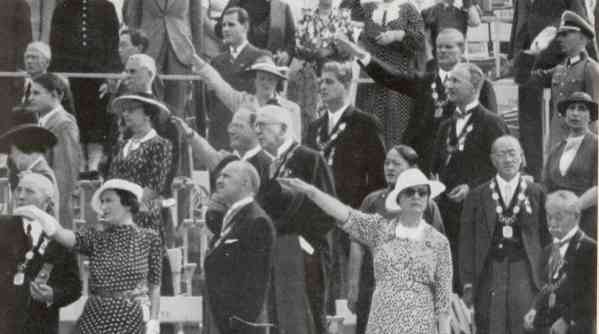Olympic Games Berlin 1936
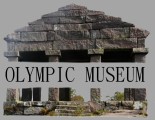

During the journey to Athens for the meeting of the International Olympic Committee in 1934, the important question concerning the festive aspect of the Games was discussed. It was decided that the International Olympic Committee, as the supreme senate of physical culture, should constitute a unit at the Olympic Games and should be distinguished as such. The Secretary-General, Dr. Diem, therefore proposed that the form generally used for magistrates and scholastic dignitaries be adhered to, and since it was deemed impractical to institute robes of office, a large gold chain should be worn to symbolize the membership in the International Olympic Committee. This proposal was approved by the Olympic Committee. Six medallions were set into the links of a gold-plated, hand-worked chain, these being reproductions of antique originals from the period between 300 and 500 B.C. depicting a The five enamelled Olympic rings were attached to a large medallion revealing a reproduction of the head of Zeus from a Greek engraved gem in the Berlin State Museum. The reverse side of the medallion contained the inscription, "XI. Olympiade Berlin 1936," and space for additional Olympic Festivals. This chain was also created by the Berlin sculptor, Herr Lemcke, whose designs met with the approval of the President of the Organizing Committee. According to the regulations drawn up, these chains become the permanent property of the International Olympic Committee, and shall be preserved at the headquarters of the Secretary-General in Lausanne, being presented to the members of the Committee on the occasion of each Olympic Festival. (Source document: Official Report 1936, Vols. I, page 126, 127) |
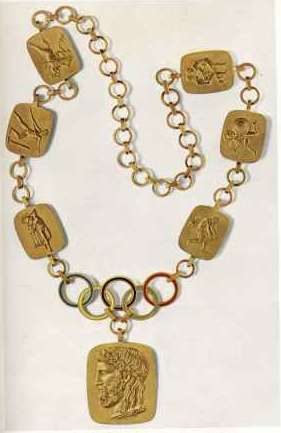
The chain intended to be worn at all future Olympic Games,
but was only worn at the Berlin 1936 Olympic Games.
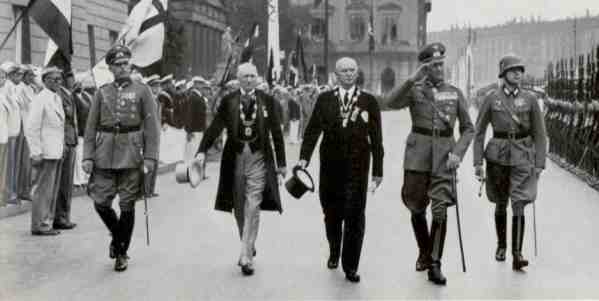
| The opening of the exhibition, "Sport in Hellenic Times," at the German
Museum on July 29th was the first official function. On the same afternoon
the International Olympic Committee assembled in the main auditorium of
the Berlin University, the room in which the first invitation to allot
the Games to Berlin had been voiced six years before. The members of the
International Olympic Committee wore their new gold chains of office for
the first time on this festive occasion. In the course of the following
days other meetings were held and the important decision was made to award
the Games of 1940 to Tokyo.
(Source document: Official Report 1936, Vols. I, page 87) |
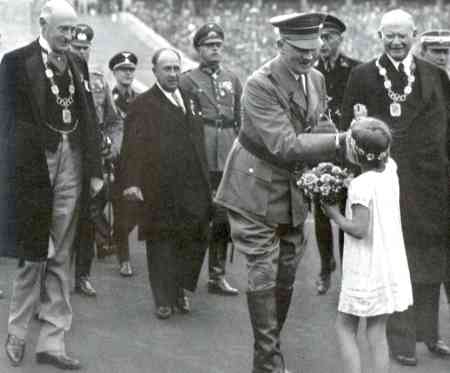
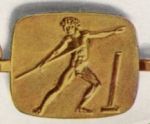
|
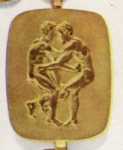
|
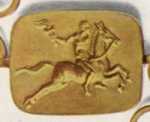
|
|
javelin-thrower |
two wrestlers |
torch-runner |
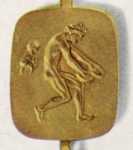
|
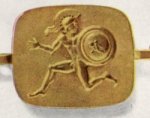
|
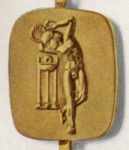
|
